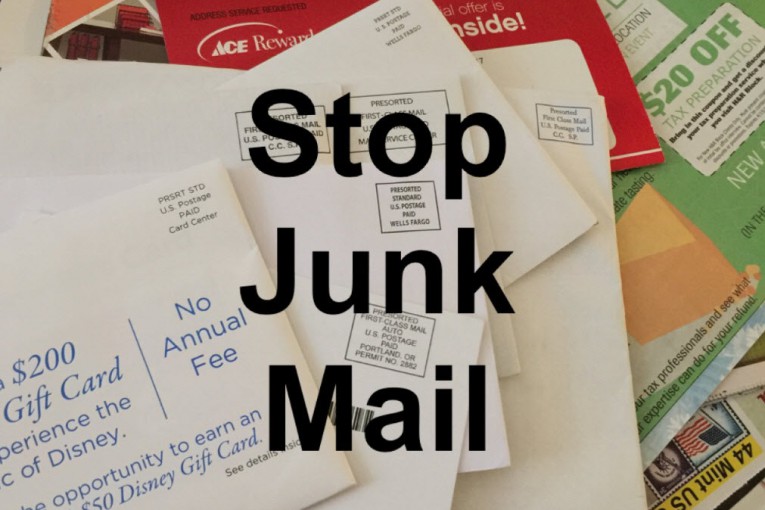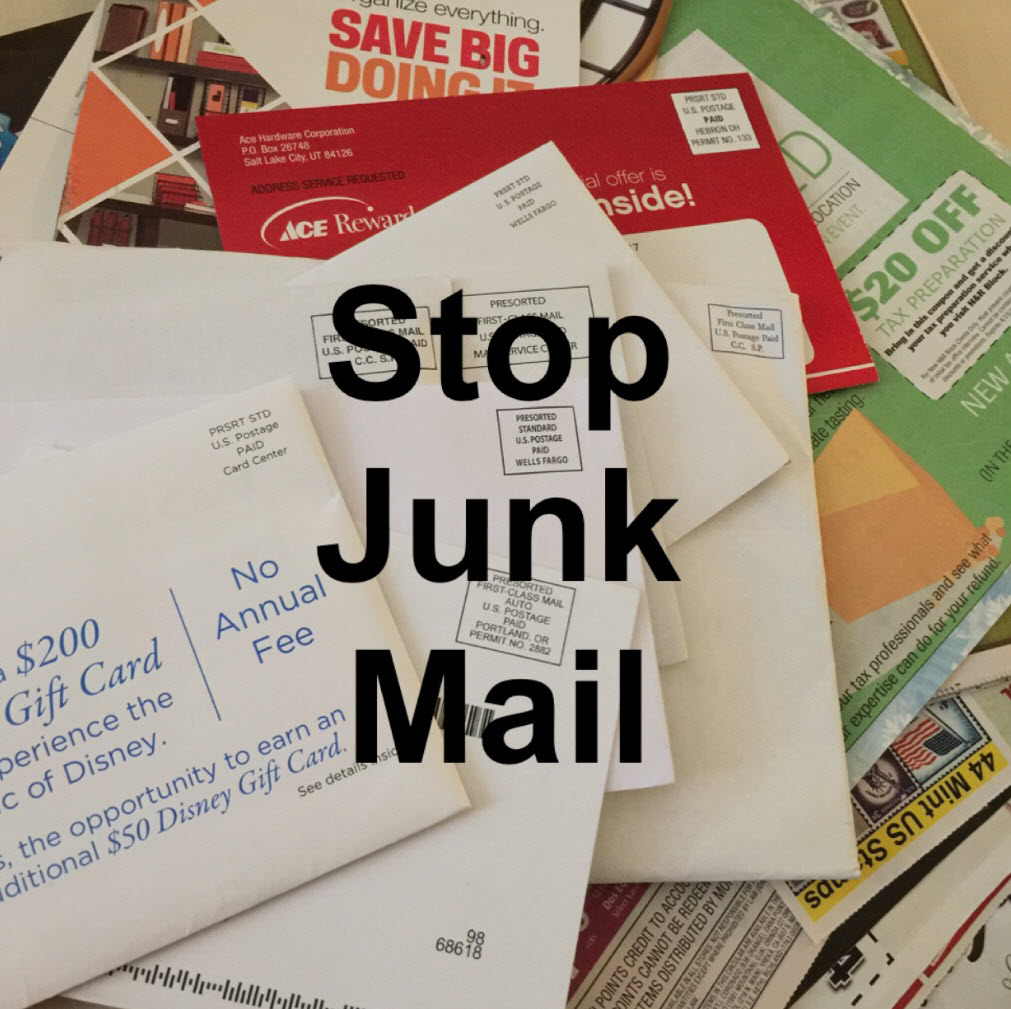

by Michelle Millet
A few months ago, I headed to the post office to open a P.O. Box for an organization I am involved with. We weren’t anticipating much mail so I requested the smallest size box, which I planned to check about once a month.
Expecting a piece of important and time-sensitive mail, I visited the post office about a week after obtaining the box and, to my surprise, found it stuffed. My surprise turned to frustration as I began pulling out what is best described, to our postmaster’s sometimes dismay, as “junk mail.”
After only a week, my little P.O. Box was filled with various catalogs addressed to seemingly every previous owner of the box with the words “Or Current Resident” printed under their names, along with credit card offers, fliers and other pieces of unsolicited advertising.
To understand my surprised reaction at my box’s content we need to go back two years when, as part of a new year’s resolution to reduce the amount of waste my family generated, I took a few simple steps that drastically reduced the amount of junk mail we received at our home address.
Because these steps were so effective I had forgotten about the onslaught of unsolicited and unwanted mail most U.S. postal customers receive every day.
More than 100 billion pieces of junk mail are delivered in the United States each year, which comes out to 848 pieces per household.
The environmental impacts of this practice are significant. More than 100 million trees are cut down and more than 28 billion gallons of water is consumed to produce one year’s worth of America’s junk mail. It takes 36 million BTUs to make a ton of paper, and the production and disposal of junk mail alone consumes more energy than 2.8 million cars.
For those wishing to reduce waste, or those who just want to cut back on trips to their mailbox, here are the little steps I took that led to big results:
Stop Direct Mail (well most of it) visit: DMAchoice.Org
The phrase “direct mail” is most commonly used to describe a type of advertising in which marketers send printed ads, letters or other solicitations through the mail to large groups of consumers at once.
Your name may be added to a mailing list of some kind whenever you subscribe to a publication, order items through the mail or the Internet, join an organization, place a credit card order, donate to a charity or enter a sweepstakes. In addition, there are companies that are in the business of selling your name to other companies who believe you may purchase their products or services.
The Direct Marketing Association’s DMA Choice program allows you to request that specific companies or types of companies stop sending you unsolicited mail. This site is part of a larger program designed to respond to consumers’ concerns over the amount of mail they receive.
For the purposes of this site, direct mail is divided into four categories: credit offers, catalogs, magazine offers and other mail offers. You can request to start or stop receiving mail from individual companies within each category, or from an entire category at once.
Stop Unwanted Catalogs visit: catalogchoice.org
To stop receiving unwanted catalogs, visit the Catalog Choice website, and take advantage of its free service, which streamlines the opt-out process so you don’t have to contact companies yourself. When you get unwanted catalogs, just go to their website and submit that sender’s information. From there, Catalog Choice takes care of the rest, letting that company know that you no longer want to receive mailings from them.
Stop Unwanted Offers from Credit Card and Insurance Companies visit: optoutprescreen.com
Under the Fair Credit Reporting Act, companies are permitted to include your name on lists used by creditors or insurers to make offers of credit or insurance that are not initiated by you. The act also allows you the ability to “opt out” of receiving these unsolicited offers. If you want to remove your name from lists supplied by the four of the largest consumer credit reporting companies, then visit the optoutprescreen.com website.
Michelle Millet lives in Davis with her husband and 11 and 9 years old kids. Follow her efforts to reduce the amount of waste her family generates on her blog Striving for Zero Waste at zerowasteindavis.org.





